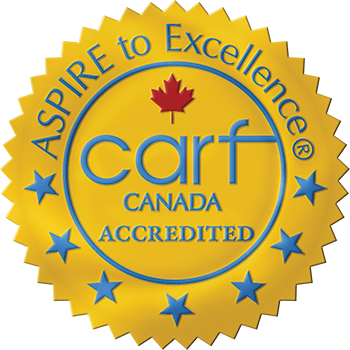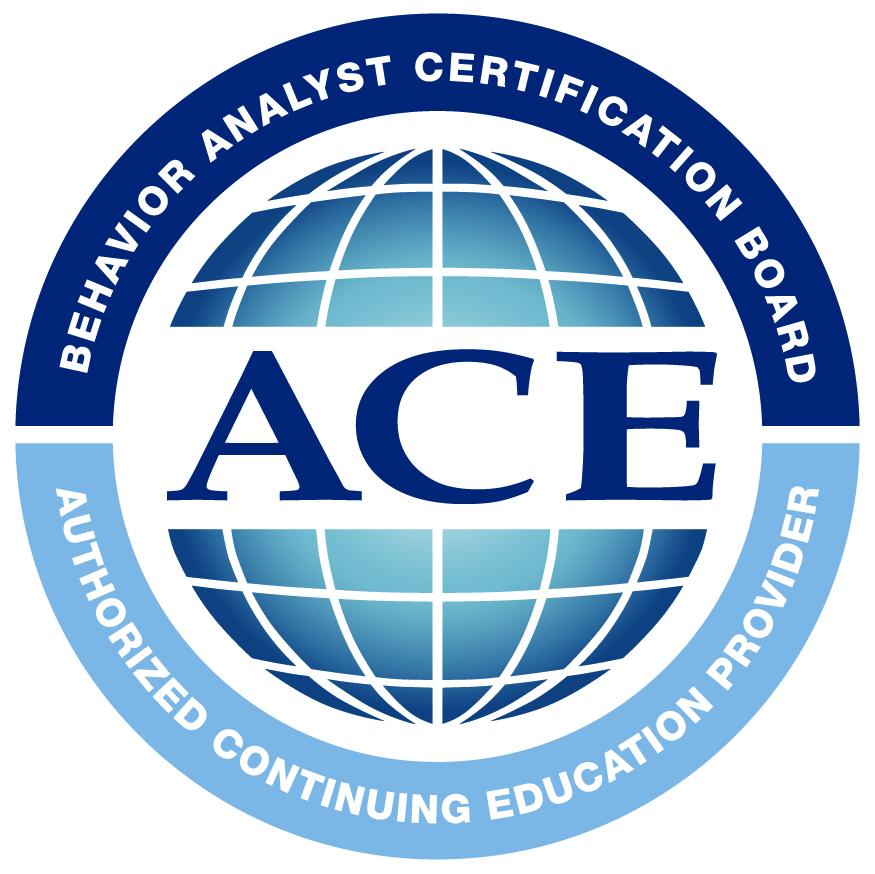“Good and Full Lives, for Everyone.”
Why innovate? That’s why.
It’s easy to get stuck. We all fall into ruts. Organizations and systems do it, too.
The community living sector hasn’t changed much in the last 30 or 40 years. Not really. Maybe there have been some tweaks to programs and services, but much remains the same: what they look like, how they run, who makes decisions, the logic behind them, what’s important to count and what isn’t, who organizations ultimately report to, our relationship with those in our services (and their families)…and so on.
The most important question—“Are people leading good and full lives?”—gets shuffled down the list because of other imperatives like safety, task completion, and compliance to systems.
How do we change that?
For the past decade, we have been deeply invested in applying new ideas and methods to develop new sets of purposes, practices, roles and frameworks. Our aspiration is one thing only: to create the conditions for people to lead meaningful lives, filled with purpose, beauty and love.
Below is the story of some of that journey. We are still a work in progress.
Can You Dig It
2009 – present
In 2009, we partnered with MOSAIC and Kinsight and founded an inclusive community gardening project called Can You Dig It! We envisioned community gardens with intergenerational, multicultural, and all-incomes households working shoulder to shoulder, and building their own support networks. We created and supported community gardens on public and private lands throughout the Lower Mainland, becoming experts at building gardens and developing resources for food-growing. The project succeeded in bringing people together, though the relationships we hoped to foster among the gardeners were slow to develop.
In 2019, we turned the program over to the Public Health Association of BC (PHABC) because they had the vision, values and ability to take it even further. Can You Dig It now supports communities across the province to create inclusive and welcoming food-growing gardens.

Building Caring Communities
2010 – present
We wondered if we could introduce new roles into the social service system that would build and nourish community as well as broker connections to and with people with disabilities. We started with the community connector role, and saw it as complementary to employment services: if they could help embed people in worksites, why couldn’t we help embed them in community? We aimed to do that by finding them places to go, things to do, and people to do them with. Together with Burnaby Association for Community Inclusion (BACI), Kinsight and Inclusion Powell River, we hired and pooled our community connectors in order to create a single “storefront” for them to develop the culture and practice needed–Building Caring Communities.
Building Caring Communities continues to facilitate connections and work to enhance social inclusion in BC.

Degrees of Change
2014 – present
In 2014, Burnaby Association for Community Inclusion (BACI), Kinsight and ourselves committed to investing in social research and design methods. After a few years, we established a website and began referring to our collective as “Degrees of Change.” The name is based on the hypothesis that change will come from a series of small changes—from bringing together new local solutions, conversations and interactions. We hoped that we might become a place that could develop and incubate new approaches. In 2018, we formalized this relationship by setting up a new entity, Degrees of Change Design, Inc., to help drive social R&D and to produce learning ongoing.

Partnering with InWithForward
2014 – present
InWithForward is a social service design shop. They spend a lot of time on the ground with people on the margins in order to understand their lived context and to codesign new solutions with them. InWithForward use a blend of social sciences, different worldviews, horizon-scanning and human-centred design in order to test new interactions and roles. They are not consultants, they are our partners, and we are grateful to them. They have been the heart and engine behind much of this effort.
Me, Us, & Them
2014
In April 2014, Degrees of Change invited InWithForward to move to Canada to spend three months living in a midrise in Burnaby. We asked them to research three things: (1) the lived experience of social isolation for people with developmental disabilities, (2) how to produce social interactions that will bring mutual value to people who might be quite different from one another, and (3) how to address risk so that it doesn’t get in the way of being in community. The result was some powerful learning which included the fact that people with disabilities were living “groundhog days” — the same routines, experiences and conversations over and over. This resulted in our first prototype, Kudoz.
Fifth Space
2015
We were interested in knowing whether we could learn to apply social research and development (R&D) methods. Fifth Space provided almost 30 employees from amongst the Degrees of Change organizations with 1 day/week of R&D training for 6 months. Our hunch was that if we taught these skills to our employees, they would apply them to their work, and we would begin to see new sorts of roles and practices. What we learned was that the conditions required for disruptive innovation are completely different from the conditions required for delivering services. Social services value consistency, predictability, compliance and stasis. Experimenting with new methods and approaches requires comfort with failure, creativity over comfort, a willingness to contest current values and assumptions, giving up control, and being comfortable with ambiguity and emergence.
This training led to Grounded Space 1.0.
Kudoz
2015 – 2022
Kudoz was an experience platform that connected people with and without disabilities to splendid things to do, together. Local community members (students, seniors, professionals, educators, businesses, hobbyists, and so on) hosted one-hour experiences which could be anything from podcasting to sword-fighting to learning Korean. Youth and adults with cognitive disabilities could search the platform for experiences and book them. The goal was to broaden people’s experiences and networks so that their worlds could open up.
Kudoz is now part of Curiko.
Real Talk
2016 – present
Real Talk promotes frank conversations around sexuality, dating and relationships amongst adults with cognitive disabilities. It uses videos (made with and for folks with disabilities), viewing parties and coaches. Real Talk is one prototype that came out of Fifth Space.

Grounded Space 1.0
2017
From Fifth Space we learned that it was not simply about upskilling employees to apply social research and design methods, but about creating the sorts of cultural conditions inside organizations to allow for experimentation, risk, failure, provocations, etc. We also wanted to test whether organizations could not only create, but also nurture prototypes that didn’t fit the logic/models of current offerings. In Grounded Space, we assigned roles of “Embedded Researchers”—staff who would spend time in programs simply to observe and glean new insights, and “Culture Curators” who would create the space for them to ask questions, challenge the status quo, and generate new ideas and alternatives. Then we went through an R&D cycle with the teams. We learned that this was too hard to do, and that it was better to develop and incubate new practices and roles on the periphery of the system and to eventually spin out on their own.
Meraki
2018 – 2022
Meraki emerged out of Grounded Space. It was a subscription-box service that introduced niche interests and passionate pursuits to people with developmental disabilities. Each box was inspired by a community muse: a backyard enthusiast, hobbyist, artist, entrepreneur—anyone, really. Meraki came from a year of research and learning alongside people with developmental disabilities and their support staff, many of whom didn’t feel they had the time, resources or permission to try new things and go outside their comfort zones. Each box came packed with everything you needed to explore something new. Every box also came with a Stretch Challenge to take you to new places and spaces in the community.
Meraki is now part of Curiko.

Grounded Space 2.0
2018
If Grounded Space 1.0 was about creating the conditions inside organizations for both delivery and development, Grounded Space 2.0 was about learning how to generate and ground new prototypes in community rather than inside organizations. How do we partner differently with community members, those with and without disabilities, so that prototypes are less about a new service for an organization, and more about a new platform co-owned/governed by community members? How do we cultivate community-rich soils which can provide the sort of nourishment that professional systems can’t provide? The Meraki team was part of this learning cohort.

The Trampoline Effect
2020
In October 2020, Gord Tulloch and Dr. Sarah Schulman (cofounder of InWithForward) published The Trampoline Effect: Redesigning our Social Safety Nets. The book summarizes our learning and consists of 12 “stretches,” or strategies, that the Degrees of Change collective believe will bring about better outcomes in social services. The stretches consist of key tensions that we believe, if maintained, will result in more generative, discerning and ethical practices. Some stretches involve expanding upon our purposes so that we are also addressing things like soul (e.g. meaning, purpose and beauty) and identity, the story of who we are and who we can become. Other stretches involve the sorts of roles we create and perform, and key frameworks we apply.
We use the term “stretches” because it’s about gradual (and uncomfortable) movements in particular directions versus simply stopping or abandoning everything we do now. We don’t think there is any one program or solution to “good and full lives:” it will be all of us pulling in new directions, bit by bit.

ArtRise
2021 – present
ArtRise is a multimedia showcase of some of our arts initiatives and the people behind them. Over the years, we’ve worked with many amazing people and organizations: posAbilities’ own artists in residence, neighbourhood organizers, Emily Carr students, and community-engaged artists. ArtRise documents our past and present creative projects. The projects span many different forms of expression, including dance, visual art, music, and interactive experiences. Much of the work falls under the umbrella of social practice art, a form of artwork that is intentional about social change.

CoMakeDo
2020 – 2022
In 2020, during the COVID-19 pandemic, Kudoz, Real Talk, Meraki, and friends came together to form CoMakeDo, a virtual experience platform. Every week, CoMakeDo hosted a range of experiences to connect neurodiverse folks with self, community, and the wider world. These experiences took place online—using YouTube, Facebook Live, and Zoom—and over the phone, for those without Internet access.
This collaboration evolved into Curiko.
Neighbourhood Organizing
2020 – present
COVID taught us just how much belonging in the places and spaces where we live matters. We are too preoccupied with building communities of interest—people who like the same things and think in the same way as us. Feeling connected to nature, to a place, and to the diverse denizens of that place, is hugely important to our wellbeing. How do we build connections in neighbourhoods across the sorts of differences and divides that keep us apart (ethnic, cultural, religious, socioeconomic, political, etc.)? How do we grow empathy, understanding and cooperation? It will shortly be enlisting neighbours to engage in “delightful subversions”—using art and activations to challenge simple narratives and engender more understanding and belonging. From it we also hope to understand what a place-based service might look like, versus one that is based on a program site.
Curiko
2022 – present
Kudoz, Real Talk, Meraki, CoMakeDo and Neighbourhood Organizing were five solutions co-designed around a common goal: creating the conditions for flourishing lives and flourishing communities. Curiko brings these five solutions into one platform and makes explicit our shared values around belonging, equality, diversity, growth, purpose and novelty. It offers experiences to its members, both with and without disabilities, designed to build authentic connections to oneself, others, place, culture and politics, and to the human project (meaning, purpose, etc.). We are working toward scaling Curiko throughout BC and to other geographical jurisdictions and markets.


















